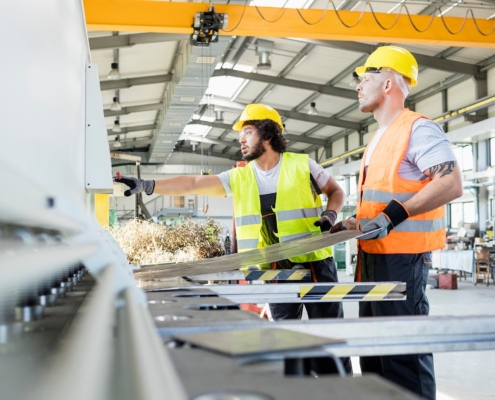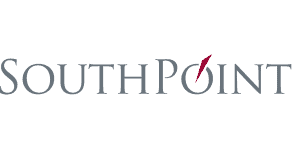 https://www.thinksouthpoint.com/wp-content/uploads/2023/10/Workers-at-manufacturing-facility.jpg
1250
2000
Abstrakt Marketing Administrator
/wp-content/uploads/2021/04/southpoint_logo_f.png
Abstrakt Marketing Administrator2023-10-31 09:00:002026-01-24 14:30:04The Role of E&O Insurance in Managing Supply Chain Risks
https://www.thinksouthpoint.com/wp-content/uploads/2023/10/Workers-at-manufacturing-facility.jpg
1250
2000
Abstrakt Marketing Administrator
/wp-content/uploads/2021/04/southpoint_logo_f.png
Abstrakt Marketing Administrator2023-10-31 09:00:002026-01-24 14:30:04The Role of E&O Insurance in Managing Supply Chain RisksYour Guide to Construction Insurance Policies
If you run a business in the construction industry, you know how dangerous the job can be. And jobsite hazards aren’t the only thing you have to worry about—car accidents, client lawsuits, equipment damage, and inexperienced subcontractors can all put your financial future at risk.
While there’s no way to avoid risks entirely in the construction industry, you can still protect your business and employees with the right construction insurance. If you’re unsure which policies you need, keep reading to learn about the different types of construction insurance and how they protect your company.
What Is Construction Insurance?
Construction insurance is a blanket term for policies that cover your business, property, workers, and liability risks during a project. The type and amount of insurance you need depends on the construction project and your role, such as general contractor, subcontractor, or property owner.
Some companies may only need a few policies to protect their risks, but others may need every type of construction insurance on the market. Additionally, you may need to adjust coverage depending on your current projects.
Types of Construction Insurance
Every business needs a different combination of coverage and limits, but these are the essential construction insurance policies you should consider:
General Liability
Construction workers face several liability risks when working on sites and projects owned by other people. These include:
- Property damage during construction: If your construction crew visits a client’s home for a remodel and damages the floor by dropping heavy equipment, the client could sue.
- Bodily injury: Your company can be held liable if a visitor gets hurt on your jobsite or a mistake in your work causes an injury.
- Damages after installation: Even after you complete a project, you can be held responsible for property damage. For example, a shelf you installed could fall months later due to poor installation and crack a marble countertop.
If a client sues you for any of the above reasons, your general liability policy will help pay for lawsuit costs. These policies also cover claims related to copyright infringement, slander, and other personal injuries.
Whether you need a brand new commercial general liability policy or a better option for your business, look for one designed specifically for contractors. Contractors’ general liability insurance often contains more protections for completed work than your average policy.
Workers’ Compensation Insurance
Workers in the construction industry routinely experience life-threatening risks, like falls, electrocutions, and getting struck by objects. And no matter how careful your workers are, preventing all on-the-job injuries is nearly impossible. Luckily, workers’ compensation insurance can protect your employees and company following a workplace accident.
Workers’ compensation insurance pays for medical bills and lost wages while your employees recover from an injury. Most policies also contain employer’s liability insurance, which pays for lawsuit costs if your employees allege that negligence or unsafe working conditions caused their injury.
Commercial Auto Insurance
One car accident can cause hundreds of thousands of dollars in damage, especially if it involves a large work truck. If your workers get into an accident on the job, your company can be held liable for injuries to other drivers and their passengers and vehicle damage.
To prevent a car accident from draining your bank account, you should purchase commercial auto insurance and choose your limits carefully. Your state’s required limits probably aren’t sufficient to cover your business during a serious claim.
Construction Risk Insurance
Construction risk insurance, otherwise known as builder’s risk insurance, protects a construction project that’s not yet completed. If your construction site gets damaged in a fire, storm, or theft event, your builder’s risk policy will pay to repair or replace the structure or materials.
Heavy Equipment Insurance
Your construction crew transports and uses expensive tools and equipment daily, from small power tools to excavators. You can easily lose six figures if this equipment gets stolen or damaged on the road or at the jobsite.
Heavy equipment coverage is a type of inland marine insurance that protects your equipment when it’s not stored safely at your main office. Your insurance company will pay to repair or replace damaged items, so you don’t drain your bank account.
Professional Liability Insurance
A construction project doesn’t just involve building; it also requires professional services like architecture, engineering, and design. And if your design team makes a mistake, like failing to deliver blueprints on time or miscalculating a load, your clients could sue.
Professional liability insurance covers the gaps left by general liability insurance, which doesn’t cover claims related to professional services. Your policy helps pay for lawsuit costs if your in-house or subcontracted team gets sued for an error.
Not sure if your company needs professional liability insurance? Learn what it covers and when it’s required.
What Are My Commercial Construction Insurance Requirements?
In many cases, construction insurance isn’t just a good idea—it’s mandatory. Most states require construction companies to carry workers’ compensation and commercial auto insurance. And even if it’s not required by law, you may need a certificate of insurance showing proof of general liability, workers’ compensation, and builder’s risk insurance to land a contract.
If you’re unsure what construction insurance coverages you need to fulfill state laws or contractual obligations, consult with an experienced insurance agent. Insurance professionals can help you evaluate risks and find the most affordable policies to meet your needs and requirements.
Need Construction Insurance for Contractors? Turn to Southpoint
Finding the right construction insurance doesn’t have to be complicated. With an agency like Southpoint on your side, you know you’re getting the coverage you need from the best insurance companies around.
From our offices in the Chicago area, the Southpoint construction team helps businesses across the nation get the financial protection they need—when they need it most. Whether you get hit with an unexpected workers’ compensation claim or a lawsuit from an unhappy client, our team is always here to guide you through the claims process and ensure you get the most out of your coverage. We have over five decades of experience advocating for clients, and our expertise comes across in every interaction.
Get in touch today to learn about Southpoint’s construction insurance options and how we can help you better protect your business. To learn more about risk management in the construction industry, check out our white paper.



